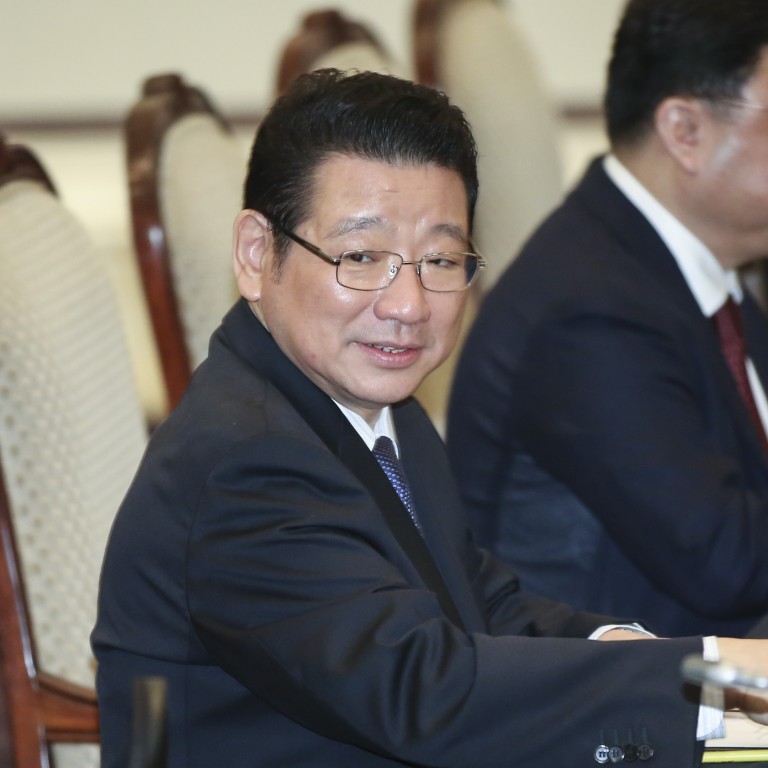
Fight terror risks in overseas projects with shared intelligence, Chinese ex-security official says
- China’s five-year plan recognises risks to overseas interests like belt and road projects but offers no security blueprint
- Former public security vice-minister Chen Zhimin says countries need to establish a concept of “mutual security” based on shared intelligence
“In the face of challenges, countries need to establish a concept of mutual security,” Chen Zhimin, China’s vice-minister for public security until 2017, told a panel organised by the Beijing-backed Boao Forum in Changsha, Hunan province, on Monday.
“[Nations should] agree to share intelligence, rules, education and experiences – including hi-tech and big data components – on security matters, in order to achieve a new model of global development,” said Chen, also a former vice-minister of internet regulators the Cyberspace Administration of China. He is currently a member of the country’s top advisory body.

01:51
Nine Chinese nationals among 13 killed in Pakistan bus blast
But it gave no details on how to achieve such a goal.
“There needs to be speedy legislation on protecting overseas investment, so there can be legal grounds for taking action,” the security expert told Beijing Youth Daily.
“Secondly, there needs to be a government-level warning mechanism that issues alerts, guidance and emergency response protocols for any huge security risk, in order to minimise the loss of life and financial costs related to overseas Chinese investments.”
“Thirdly, there needs to be a functioning international cooperation mechanism with the investment recipient country, as their public security abilities are always critical to the safety of Chinese-funded projects.”
Chinese companies should also improve their own risk assessment mechanism and provide more training for staff, Lu added.
Will African risks pay off for China or buyer’s remorse beat soft power?
Chinese companies invested over US$153.7 billion abroad in 2020, according to the latest government report on outward foreign direct investment.
The document, released in September, said 28,000 Chinese investors had put money into more than 45,000 companies in 189 countries worldwide. And more than 11,000 companies had been established under the belt and road scheme, which around 140 countries had signed up for.
Chinese interests abroad have been targeted by militants or other bad actors in recent years.

01:29
Car bomb kills at least 4 at Pakistan hotel hosting China’s ambassador

